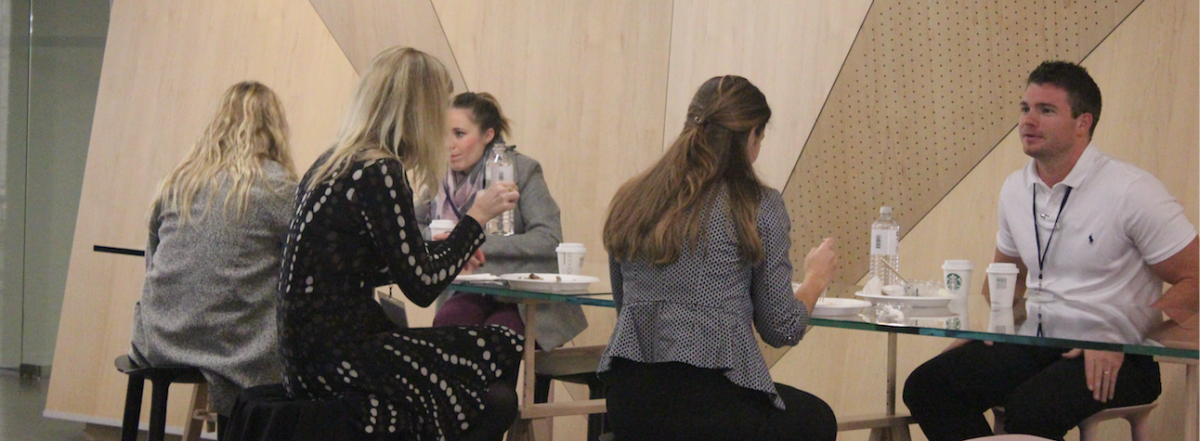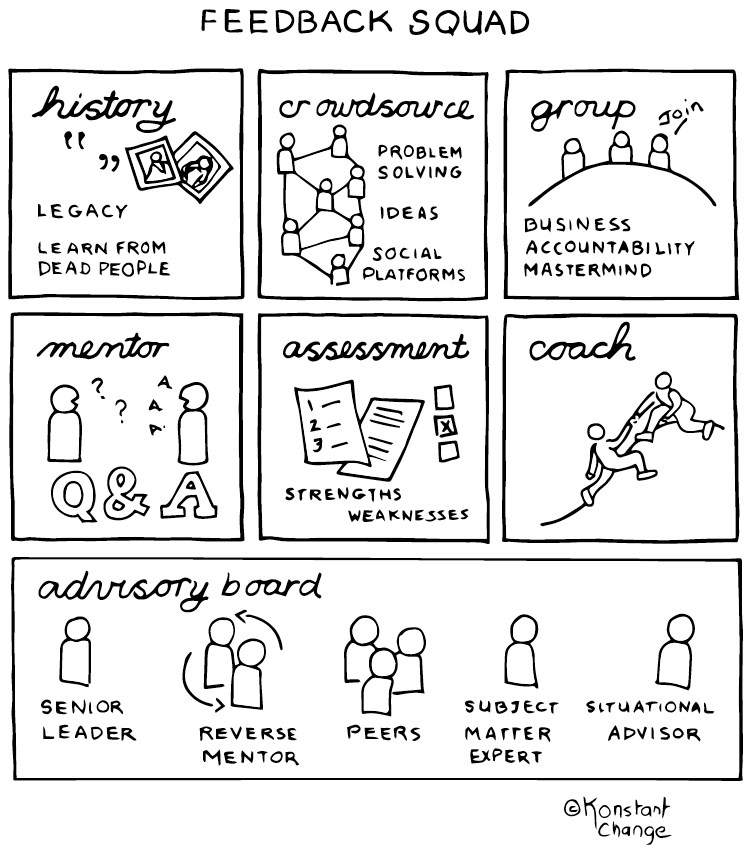
While perspiration and hard work are critical to career design, you can’t go it alone. The agile careerist knows not to ignore the influence of co-workers, workplace politics, and in your corner advocates.
Feedback Matters
As the Swedish psychologist Anders Ericsson learned in his research, feedback is required to achieve expert performance. He defines this process of practice with the help of a feedback from a teacher, “deliberate practice.”
Professor Ericsson studies how people improve at just about anything: playing the violin, excelling in sports, or becoming better at chess. The act of focused repetition of a task or a skill, accentuated by constructive critique, will accelerate mastery.
This perspective dispels the assumption that 10,000 hours of practice alone will earn you mastery status. A notion made popular in Malcom Gladwell’s book, Outliers.
Feedback is one of the core principles of an agile career.
No one can do it alone. Seek the advice of people you respect: mentors, trusted friends, and savvy colleagues. You can also pay it forward by participation in a feedback loop for others through mentorship or conversational guidance.
You can’t be a trailblazer without help.
80% Lack an Official Mentor
In my comprehensive interviews for Activate Your Agile Career, I stumbled across a fascinating discovery. Over eighty percent of people interviewed for this book confessed they had no official mentor throughout their career.
You may recognize the official or assigned executive mentor missing in action for most of us. Picture the well-connected senior leader, approximately ten to fifteen years older (and wiser), meeting with you frequently to ensure workplace success.
Yeah, that one.
A true mentor is like a unicorn to many of us. Hard to find and difficult to believe we have access to their brilliance.
Yet, I uncovered something remarkable about agile careerists. Despite the lack of designated influential leaders in their lives, many of these workers made significant advances in the workplace.
How did they achieve their success, while focusing on what was important to them, such as learning or happiness? Upon close reflection, they were not truly alone. The resourceful nature and problem-solving abilities of this crew found a way to assemble who and what they needed to grow.
They created their own diverse feedback squad, sometimes situational, and often through an informal arrangement. Agile careerists received feedback from trusted advisors at regular intervals, and at key inflection points.
Most important, they all asked for help.
Assemble your Feedback Squad
I learned three truths about receiving feedback:
1. A feedback loop is self-directed and accessible by all workers. Yes you.
2. The definition of mentors and mentorship expands beyond the senior leader advocate, including a vast assortment of friends, colleagues, and trusted advisors. The limited definition of a “traditional mentor” requires a reboot. The casting call for feedback is open for supportive people already in your orbit: friends, younger workers, older employees, peers, and people outside your industry.
3. Being authentic to who you are (maybe you run triathlons instead of playing golf) will attract your tribe of helpers.
Feedback teams are comprised of specific mentors, or a series of people who care about your development. Your brain trust of advisors is similar to a treasured collection of souvenirs, evoking memories of your experiences, yet fostering future dreams.
Keep asking this important question: “How can I be better?” Launch a deliberate practice called “My brilliant career.” You will create a feedback squad worthy of your cultivation.
As Ken Blanchard, a management expert and prolific author shares, “Feedback is the breakfast of champions.” I’d say it’s time to be selective with your breakfast menu.
I detail eight different types of feedback in the book, Activate Your Agile Career: How Responding to Change Will Inspire Your Life’s Work. Perhaps you’ll take advantage of all eight. This diagram outlines the potential cast members of your team.

Likely, one or two of these methods may be an appropriate fit for your personal style.
How do you travel down the productive road to betterment, improvement, and beyond?
Join a movement of agile careerists who are constantly seeking feedback and self-directing their life’s work.
If you are interested in the future of work, career development, the workplace, personal branding, workforce trends/ideas, agility, or how to cultivate happy profitable employees, subscribe to Marti’s 52 Ideas. For more details on career agility, check it out here.
